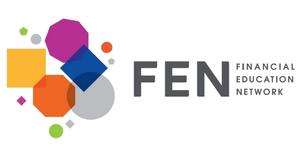Insurance and Takaful Industry Presents Recommendations to Address Rising Healthcare Costs and Insurance Premiums/ Takaful Contributions
KUALA LUMPUR, 7 March 2025 – The Life Insurance Association of Malaysia (LIAM), the Malaysian Takaful Association (MTA) and Persatuan Insurans Am Malaysia (PIAM) held a productive session with the Public Accounts Committee (PAC) in a bid to address the escalating costs of healthcare and insurance premiums. The engagement session held in Parliament on 26 February 2025, provided an avenue for constructive discussions on sustainable healthcare financing and cost-containment strategies.
The industry recognises the efforts by the PAC to address escalating medical inflation and rising healthcare costs in the country and is looking forward to the “whole-of-nation” approach within the next few years. The insurance and takaful industry has introduced interim measures to support policyholders affected by the premium repricing. These measures aim to ease the financial strain while ensuring continued access to medical and health insurance and takaful (MHIT).
The interim measures include spreading out premium / contribution increases over three years (until 2026), capping annual hikes below 10% for most policyholders /certificateholders (about 80%), and offering a one-year premium freeze for policyholders /certificateholders aged 60 and above on minimum medical and health insurance/takaful (MHIT) plans. Additionally, policyholders /certificateholders whose policies /certificates lapsed in 2024 due to repricing can reinstate coverage without new underwriting, while insurers and takaful operators (ITOs) will introduce alternative, more affordable MHIT products by 2025.
The industry collectively proposes key recommendations, aimed at promoting affordability, transparency and sustainability within Malaysia’s healthcare and insurance as well as takaful eco-system. Among the key proposals were:
- Implementation of DRG (diagnostic-related grouping) pricing to enhance transparency in healthcare services chargers and billings. Aligning cost structures between healthcare providers, ITOs and Third-Party Administrators (TPAs) is essential in managing healthcare expenses effectively.
- Working with BNM to develop a basic long term sustainable insurance and takaful product while allowing ITOs to offer top up schemes for those seeking additional coverage.
- Greater transparency by publishing the average costs of common procedures/treatment across private hospitals and annual medical costs inflation rates to empower consumers with greater financial awareness. The establishment of industrywide claims database will improve claims analysis and help mitigate abuse.
- Co-Payment for MHIT products, a key long-term solution which helps policyholders /certificateholders manage costs by encouraging shared responsibility in healthcare expenses. Co-Payment, especially co-insurance, can encourage more responsible consumptions of health services.
- Regulating Pharmaceutical Costs – Collaborating with the Ministry of Health (MOH) to promote the use of generic drugs and regulate medication pricing. Reports indicate that pharmaceuticals account for a substantial portion of private hospital revenue, indicating the need for cost controls.
- Calling for private hospitals to set up cost containment unit and to freeze increases during periods when insurers and takaful operators are required to cap premium hikes. This measure aims to ensure that cost containment efforts are equally distributed across the healthcare eco-system.
- Tax Exemption on Group Insurance from 8% SST to encourage more employers to provide insurance and takaful protection for employees. Currently approximately 4 million employees including those from the B40 group, receive coverage through workplace schemes.
- Appoint an independent consultant to conduct a detailed study to analyze and recommend stakeholder actions to reduce claims inflation. This comprehensive study will provide data-driven insights and recommend effective stakeholder actions to control rising claims costs.
- Encourage and incentivise healthier lifestyles through no claim bonuses, a reward system that benefits those who maintain good health, helps promote well-being and strengthens policyholder engagement and loyalty. This initiative will also reduce unnecessary medical claims.
The insurance and takaful industry strongly advocates for a “whole-of-nation” approach to tackling the rising costs of medical care. This includes greater pricing transparency, the implementation of DRG initiatives, and a commitment from all stakeholders – including healthcare providers, regulators, and insurers – to adopt sustainable cost-containment measures.
LIAM, MTA and PIAM remain committed to working closely with Bank Negara Malaysia (BNM), the Ministry of Health (MOH), Association of Private Hospitals Malaysia (APHM), and other key stakeholders to develop long term solutions that balance affordability, quality and accessibility in Malaysia healthcare landscape.


